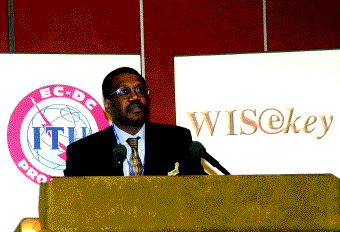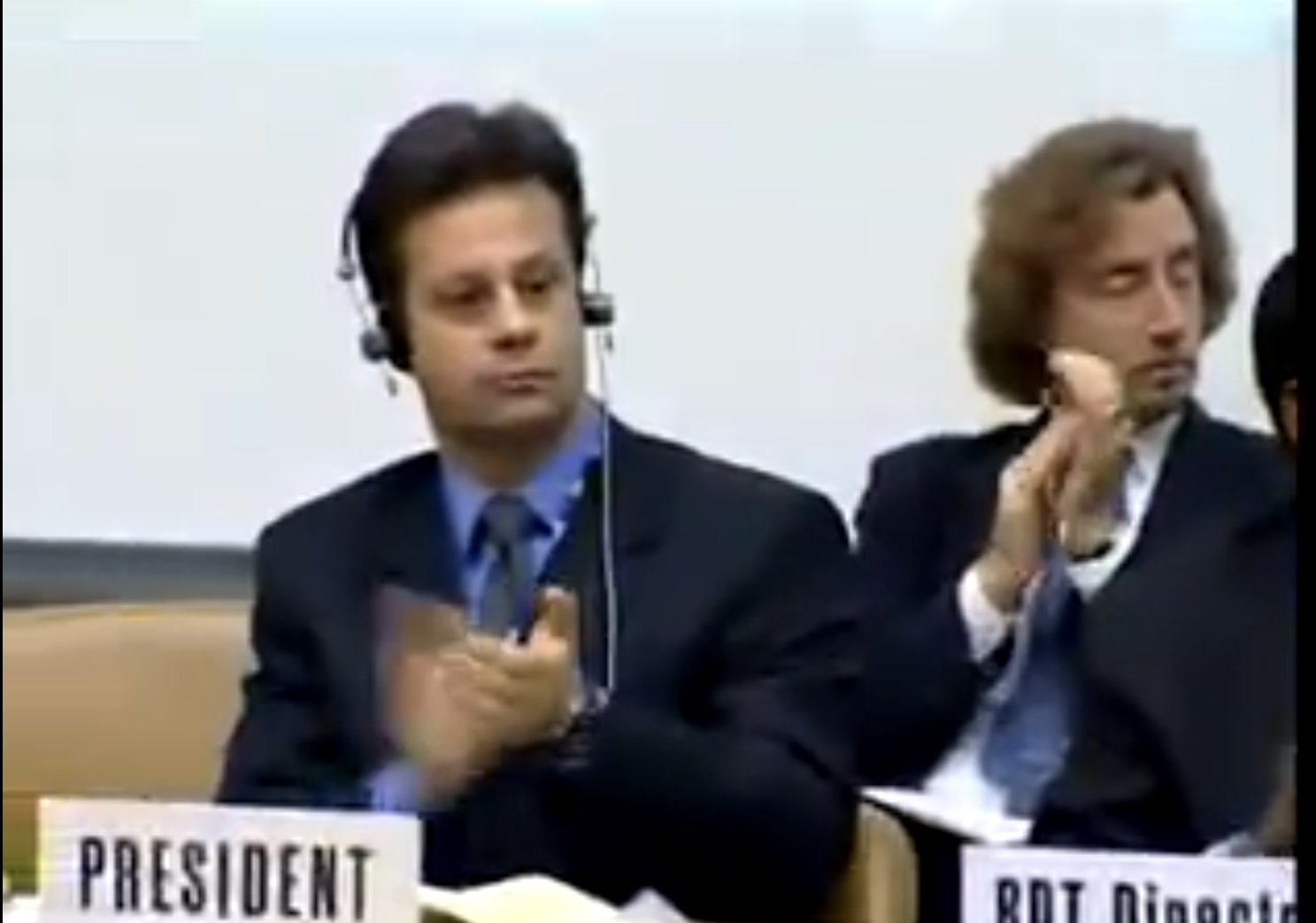About us
The OISTE Foundation, created in Geneva in 1998, is a not-for-profit organization regulated by article 80 et seq. of the Swiss Civil Code.
OISTE has proprietary rights upon a Root Cryptographic Key that allows robust digital certification of persons and objects.
In a traditional PKI system, the root certificate is managed by a centralized authority.
In a quantum root of trust PKI, the root certificate is secured with quantum cryptography, which is considered to be unbreakable and extremely difficult to crack if properly executed. This makes the certificate extremely difficult to clone or replicate and provides an additional layer of security to the PKI system. The quantum root of trust PKI is gaining increasing attention due to its potential to provide reliable and secure communication networks in a quantum era.
The society WISeKey acts as the Operator chosen by the foundation for the management of the root cryptographic key.
OISTE and WISeKey are bound by a defined Trust Framework and Certification Practice Statement (CPS).
Focus
The focus of the OISTE Foundation is pure identity, more specifically: certified digital identity.
Objectives
- Represent the voice of civil society in the debate about the social and political dimensions of different solutions to digital identity management
- Represent the voice of civil society in the debate about the legal, economic and technical dimensions of Public Key Infrastructures (PKI) as a solution to strong digital identification of persons, objects and content
OISTE holds special consultative status with the Economic and Social Council of the UN (ECOSOC) and interacts with the Human Rights Council, the International Telecommunications Union and the World Summit on the Information Society (WSIS).
OISTE is a member of the Not-for-Profit Operational Concern constituency of ICANN and actively participate in the public debate of contemporary issues such as:
- The UN Sustainable Development Goals for the year 2030, point 16.9: providing a valid legal identity to all human beings on the planet
- Internet governance
- The respect of the human right to privacy in the digital world
- The protection of personal data in the digital age
- Child on-line protection
History
Electronic Commerce for developing Countries evolves by leaps and bounds
Demand for assistance in electronic commerce (e-commerce) is growing fast. So fast that ITU’s Electronic Commerce for Developing Countries (EC-DC) project is now being expanded to more than 100 countries in Africa, Asia-Pacific, Europe and the Commonwealth of Independent States, the Americas and the Arab States.
Responding to this ever-growing demand, ITU and the World Internet Secure Key (WISeKey SA) organized a training workshop in Geneva from 27 to 29 November 2000 with the support of a number of companies from the world of information and communication technologies (ICT). Known as the Secure Electronic Commerce Partnership Conference or WISeWorld 2000, the event was opened by Guy-Olivier Segond, President of the State Council of the Republic and Canton of Geneva, and Hamadoun I. Touré, Director of ITU’s Telecommunication Development Bureau (BDT).
 E-commerce is transforming the way business is done by increasing market access, creating new revenue streams, establishing new types of relationships and bringing efficiencies in business processes. But as the transformation towards a networked economy continues, not all countries are participating in this revolution. Teledensity (the number of telephone lines per 100 inhabitants) used to be the measure of the gap between developing and developed countries. Today the gap is spreading to new services and technologies and widening ever more rapidly
E-commerce is transforming the way business is done by increasing market access, creating new revenue streams, establishing new types of relationships and bringing efficiencies in business processes. But as the transformation towards a networked economy continues, not all countries are participating in this revolution. Teledensity (the number of telephone lines per 100 inhabitants) used to be the measure of the gap between developing and developed countries. Today the gap is spreading to new services and technologies and widening ever more rapidly
The EC-DC project was launched at the World Telecommunication Development Conference in Valletta in March 1998, as one of the initiatives to bridge the digital divide. It is worthwhile to recall its aims: to coordinate the establishment of e-business infrastructure, enable the transfer of e-business technologies, address e-business policy and strategy issues and forge neutral and non-exclusive partnerships with industry.
For developing and least developed countries, e-commerce has the potential to create value-added services that would stimulate investment and the use of ICTs. This untapped potential was one of the driving forces behind the launch of the EC-DC project, which is evolving by leaps and bounds to enable these countries to participate in the networked economy.
Already, the partnership agreement which ITU signed in 1999 with the Geneva-based World Trade Centre (WTC) and WISeKey SA has yielded an operational EC-DC centre in Viet Nam, as well as in-kind contributions of more than USD 7 million. In June 1999, EC-DC was presented with an innovative project award by the Global Bangemann Challenge in Stockholm. Furthermore, EC-DC was cited in Time Magazine of July 2000 as an activity to watch out for.
 WISeWorld 2000 was the result of more than seven months of preparation. Some 500 participants from 120 countries and 11 international organizations attended the event. More than 50 leading industry experts in e-transaction security, trust technologies, risk management, e-financial services, software and hardware technology providers demonstrated leading-edge e-business solutions.
WISeWorld 2000 was the result of more than seven months of preparation. Some 500 participants from 120 countries and 11 international organizations attended the event. More than 50 leading industry experts in e-transaction security, trust technologies, risk management, e-financial services, software and hardware technology providers demonstrated leading-edge e-business solutions.
Participants watched live demonstrations of public key infrastructure (PKI) and PKI-enabled applications for secure contracts, digital signatures, virtual private networks, secure market-place and digital certification services. These solutions were the result of more than six months of intense collaboration among more than 15 ICT companies, all working towards the same goal — namely, secure infrastructure and applications for e-transactions (business, health and government services).
Participants from developing and least developed countries in Africa, Asia, the Americas, Europe and Arab States were granted full fellowships to attend WISeWorld 2000. Most of them represented trade and business organizations, governments, chambers of commerce, telecommunication operators, Internet service providers, financial institutions, regulatory agencies, non-governmental organizations and private sector trade organizations. Four ministers and 17 ambassadors represented their governments and their Geneva-based missions, respectively.
This coming together of a wide range of sectors was a clear demonstration of how important e-business and e-transactions, in general, have become for everyone (not just for businesses and the ICT sector) and how these trends open new doors for e-government services.
Much of the training focused on risk management for security and trust services, legal issues regarding the use of digital certificates, conduct of e-transactions and the requirements for building global trust infrastructure.
In summary, WISeWorld 2000:
- Officially launched the deployment of secure e-business infrastructure in more than 100 countries participating in the EC-DC project, using infrastructure and services funded mostly by WISeKey and its industry partners.
- Demonstrated how the use of digital certificates is vital for building trust and security in electronic transactions between developing, least developed and industrialized countries.
- Provided participants with an understanding on how secure e-commerce offers high value-added services to end-users.
- Demonstrated how digital certificates are issued to end-users and how these certificates are revoked and suspended. This demonstration included interaction between the trust infrastructure and applications for e-transactions.
- Raised awareness on the economic and social benefits provided by e-commerce and showed the untapped potential of modern information technology in boosting innovation, productivity and economic growth worldwide.
- Addressed the legal issues related to the use of digital certificates, the operations of certification and registration authorities and the recognition of digital signatures.
- Covered key areas relevant to the implementation of Internet security through case studies and discussions on specific community solutions such as:
- international cooperation processes in accreditation standards for certification products and services and international trends in risk-management issues;
- corporate processes designed to enhance technology integration and applications development;
- projects which aim to use e-security in order to boost the provision of content for end-users;
- gains in government efficiency provided by a secure electronic environment, particularly in government procurement.
 What next?
What next?
The curtains may have fallen on 29 November 2000, but the interest of so many countries means that follow-up activities will be intense. Discussions are going on with technology providers to offer free on-line training on e-security and trust to developing countries. A CD-ROM on the event is being prepared and will be sent to all participants.
An offer was made by a leading private law firm to provide free assistance to developing countries establishing the legislative framework for e-transactions. Discussions are under way between ITU and industry partners to organize a similar event in other regions.
For more information, please visit the EC-DC website (www.itu.int/ecdc) or contact:
Alexander Ntoko,
Project Manager, EC-DC, ITU/BDT
Tel.: +41 22 730 5525
E-mail: ntoko@itu.int

